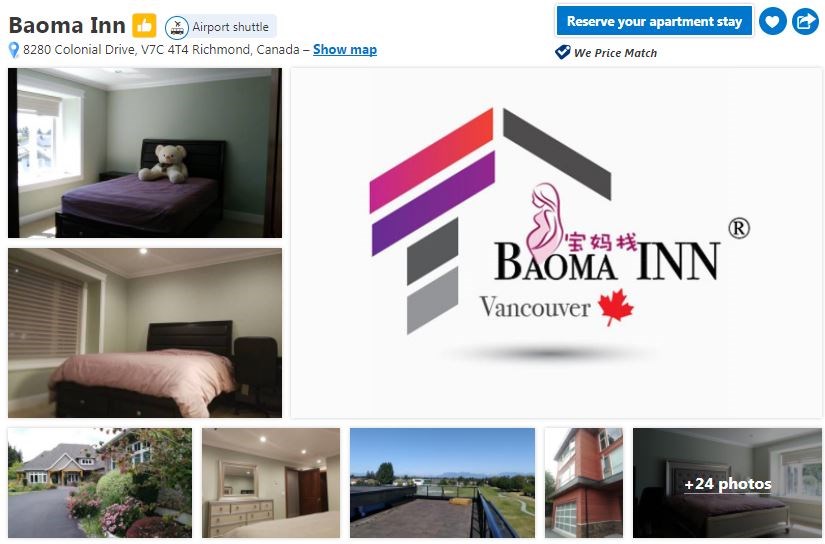Coun. Ken Johnston says the City of Richmond should follow the lead of Vancouver and San Francisco in asking short-term rental operators to register with city hall and display a registration number on online booking sites, such as Airbnb.ca.
“I’ve always said we should be doing the same thing. At least a registration and a cross check,” said Johnston.
As reported by the San Francisco Chronicle last week, a new municipal registration system was recently activated, thus forcing Airbnb to remove roughly half of its 10,000 or so San Francisco listings because those operators have not registered their property.
San Francisco’s registration system will, in theory, allow officials to better monitor short-term rentals and enforce the likes of a cap of 90 days/year in which rooms can be rented (preventing homes from becoming de facto hotels).
In Richmond, a short-term rental bylaw passed last year allows any resident who uses their home (owned or rented) as a principle residence to rent to up to two people each night (no cap), under “boarding and lodging” rules.
A registration system would also prevent property owners from double listing, which would allow them to rent to more than two people.
‘If you ask me, I’d like to see a business license system,” for boarding and lodging. “That’s what I’d like to see happen,” said Johnston.
“I think it would help in terms of policing,” said Johnston
One resident emailed the Richmond News, pointing to a home on Colonial Drive that has multiple bedrooms being rented on multiple online sites (it also appears to double as a Chinese birth tourism house).
The city licenses larger short-term rental operations (up to three bedrooms and six guests) as bed and breakfasts — and only for detached homes that are lived in by a resident. The city limits bed and breakfasts to a 500-metre buffer between each operation (old bed and breakfasts are grandfathered).
However, those licences don’t have to be posted on listing websites, which makes it difficult for residents to discern what is and isn’t legal.
But Johnston said even a licensing system wouldn’t be a panacea.
“You’re never going to nail everyone 100 per cent. I’ve got a neighbour who does it, doesn’t do it, and does it. I’m not justifying it, but I know it’s very difficult to track,” said Johnston.
According to Johnston, the city has reduced its enforcement staff from four temporary inspectors to one permanent inspector.
He said short-term rentals have declined to 600 in the city after reaching about 1,700 last summer. From January to October of 2017 the city shut down 211 illegal short-term rentals.
But he warned the winter months may see a lull in numbers.
“They (officials) claim to have a handle on it. I believe like everything else we have to review it.
“I assume there’s more of these in the summer. If it flares up we’ll address it,” he said.



